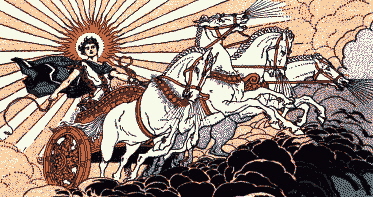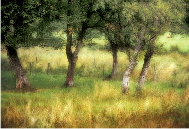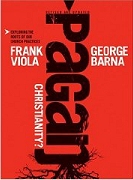|
Quick Review: While Frank Viola and George Barna rightfully point out the accretion of various pagan influences that have become traditions in the Western Church, they inexplicably ignore the cultural and historical matrix from which the primitive Church was born, namely, the fact that Jesus was a first-century, Torah-observant Jew, as were all his disciples (including the apostle Paul). Ignoring this obvious fact, Viola and Barna seem to characterize Jesus as a Cosmic Christ who "floated down from heaven" in order to repudiate Jewish religion and establish an ahistorical entity (mistakenly called the "ekklesia") that transcends all forms of authority (other than the nebulous idea of being submitted to the "Headship of Christ").
When discussing the "Lord's Supper," for example, the authors seem oblivious of the connection with the Passover Seder of Jesus and His disciples. Constant references to the "first century church" or the "early church" reveals a profound lack of understanding of the inherent Jewishness of the gospel of Jesus -- the "King of the Jews."
The book is tendentious in that the authors, in a way not unlike various Christian cults, propose relinquishing most church tradition and dogma, and in its place find access to the true faith in their (distinctly postmodern) model. Their iconoclasm is meant to sell you the sequels to the book -- how to grow your own "certified organic assembly" that is free of the pratfalls of the "Church."
Very little charity toward the historical Church is found in this book (which reads a bit like a college research project, replete with tiny-print footnotes). No church tradition -- from singing hymns to hearing a sermon -- is immune from their criticism; no acknowledgment is given to the work and influence of the Church over the last two millennia. No - Viola and Barna are the postmodern "answer men" who are here to reinvent innumerable saints -- many of whom were martyred for their convictions -- as (unwitting) victims of paganism who need to get back to the "real gospel" message, etc. etc.
Though it's fun to read (somewhat like the "Devil's Dictionary" by Ambrose Bierce), it is simply not a serious work of scholarship. Those who are interested in pursuing the truth rather than indulging in puerile iconoclasm shouldn't waste their money...
Addendum: Another serious problem I have with "Pagan Christianity" is that it (ironically) exhibits a Greek-bias and therefore tacitly endorses postmodern nihilism. What do I mean? Well, as Viola gives his spin on "the Story of Christianity," he simply disregards the Armenian church, the Syrian church, the Indian church, the Ethiopian church, and so on, which were not directly subject to ways and traditions of the western, Roman branch. Such an oversight is inexcusable in a book that purports that the whole of Christianity has been infiltrated by paganism. So at best we can say that the authors set up a "straw man" -- only to knock it down. They might want to consider renaming the book to "Pagan Christianity in the Western European Tradition," but of course that doesn't have quite the shock value of an "edgy" book that's meant to attack Christianity as a whole.... Regardless, the most glaring problem with the book is that the authors turn blind eyes to the historical context of Yeshua and therefore discount the Jewish roots of the faith. In this regard, Viola and Barna are replacement theologians who contemn the Jewishness of Yeshua and his followers. Since they ignore the entire matrix from which the message of Yeshua can be understood, I consider Viola and Barna to be untrustworthy guides on these matters. Beware, chaverim....
 |
|







